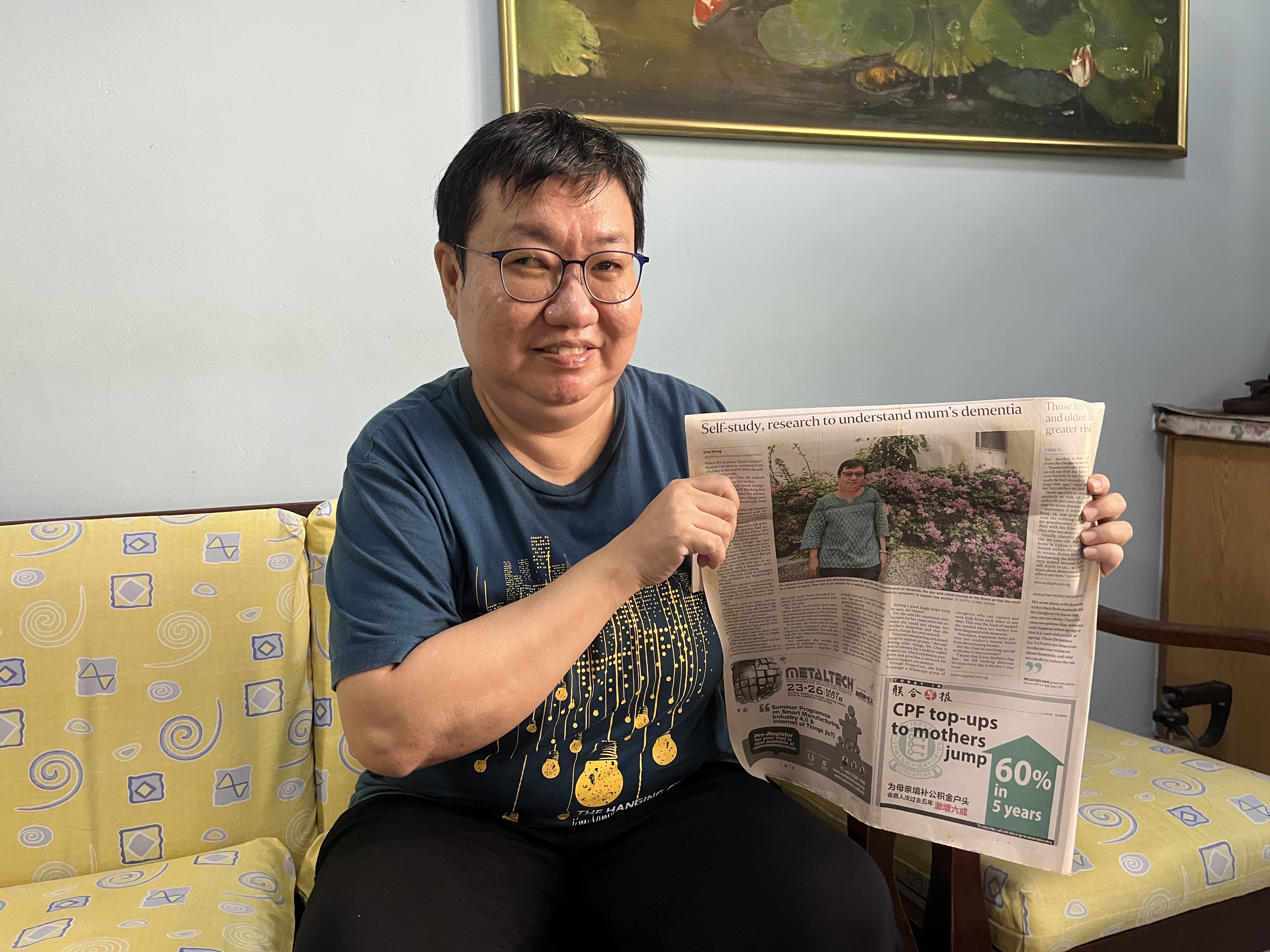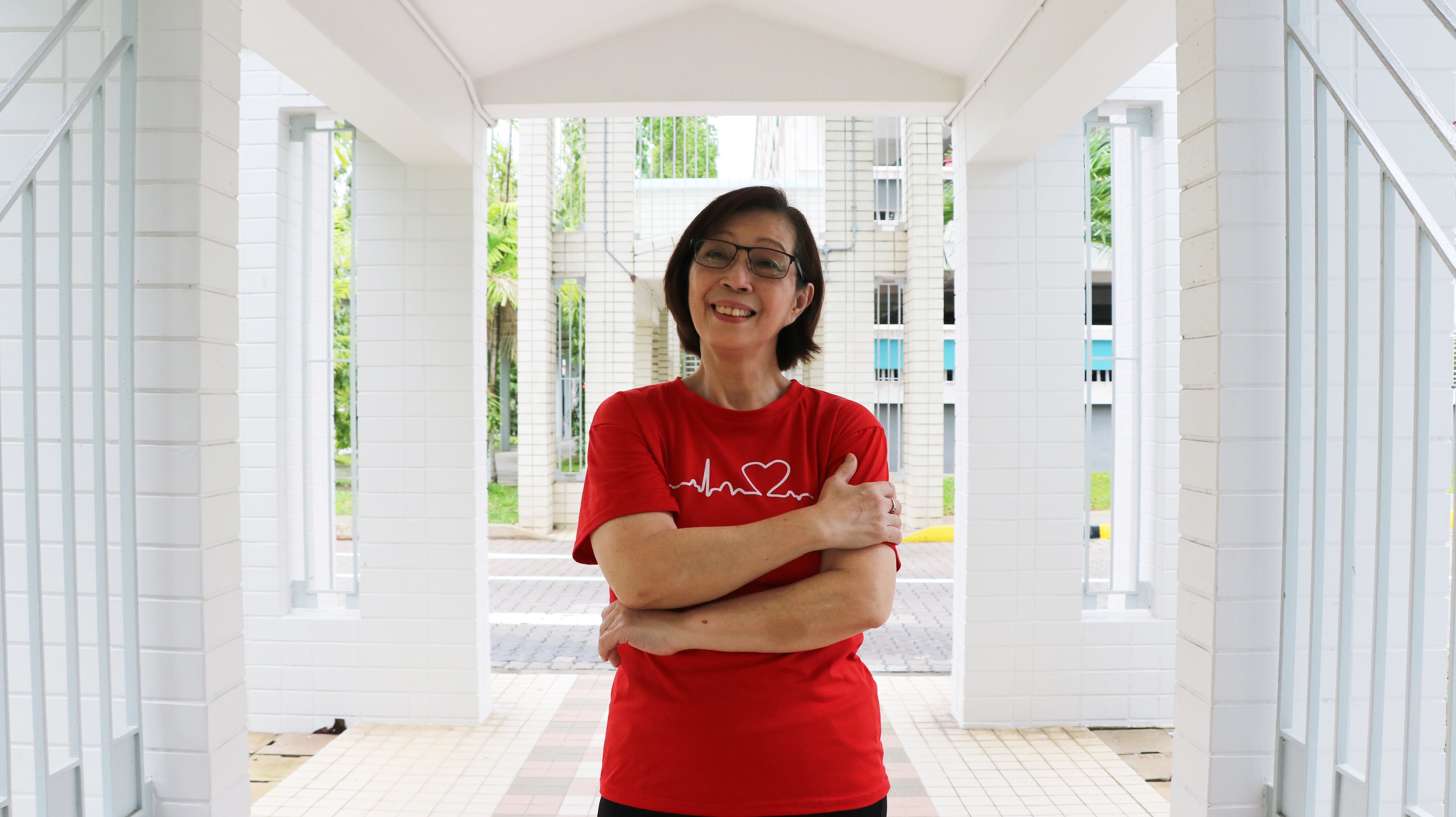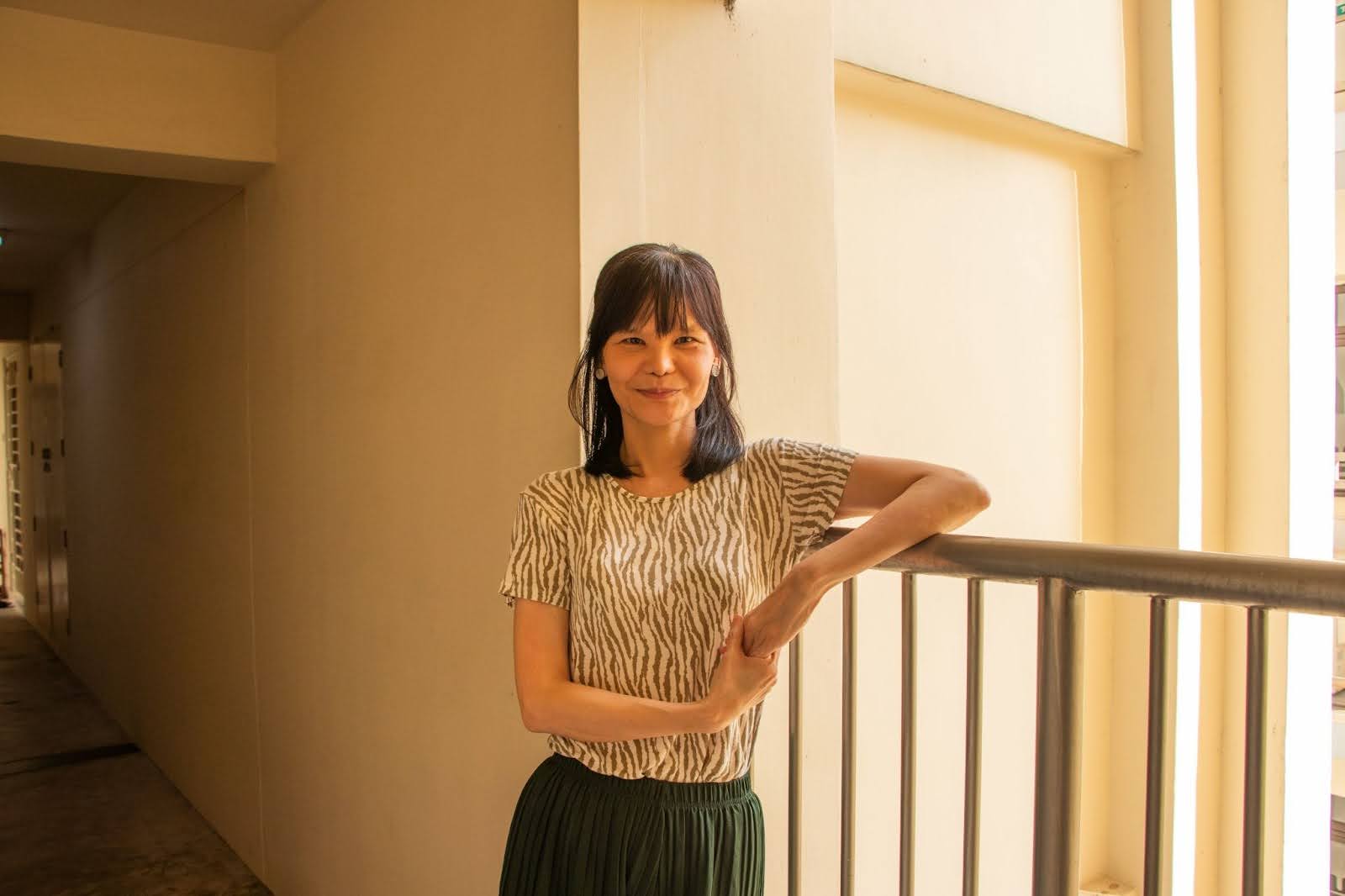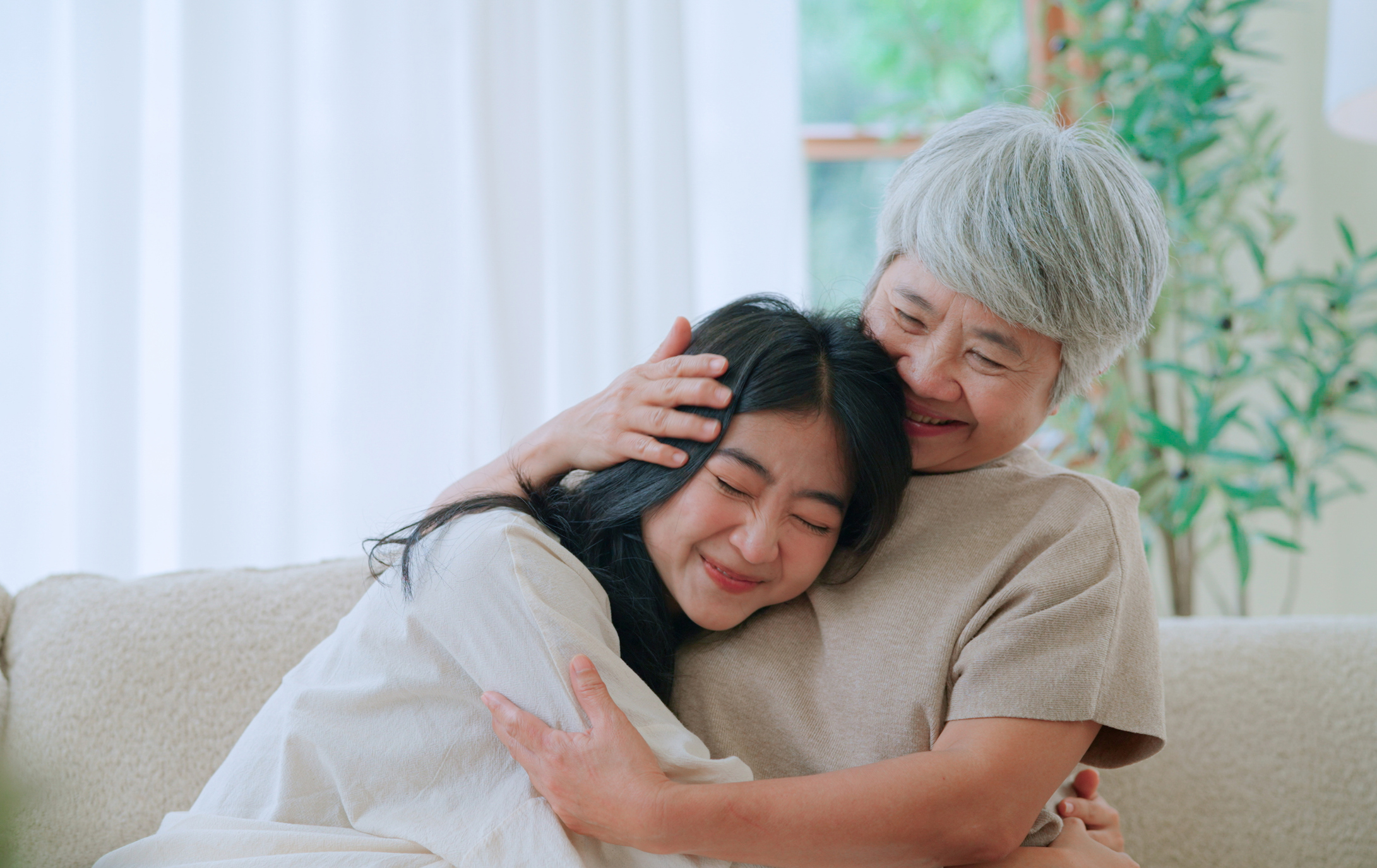Caregivers are a resilient and dedicated lot — they have to be able to care for their loved ones to the best of their ability. At 49, Ms Jasmine Chua is a seasoned caregiver, having devoted almost two decades to caring for her parents. She first took care of her father in the last years of his life as a cancer patient while also taking care of her mother (now 88 years old), who was just diagnosed with dementia. Her journey is marked by a deep commitment to family, significant personal sacrifices, and the relentless pursuit of compassionate care.
The Beginning of a Caregiving Odyssey
Jasmine’s journey as a caregiver began when she had to take care of her cancer-stricken father in the last years of his life. But it was her mum’s stroke in 2005 and eventual dementia diagnosis the following year that really set her on the path of caregiving. “Looking back at those 19 years, I don’t know how I survived,” she said with a smile and a little laugh, “especially since I didn’t know anything about dementia,” Jasmine recalls. “I mean, of course, doctors knew about it, but I don’t think it was as talked about among ordinary folk as it is now. For people like us who had a family member with dementia, we didn’t know about the practical aspects of it, what we needed to do.”
All Jasmine and her family knew was that her mum’s behaviour changed — from little things like forgetting where she hid her money, to major changes like, “she would hide cooked food inside the cupboard in the toilet. At first, I couldn’t figure out why I smelled cooked fish or chicken in the toilet, until one day, I looked in the cupboard and there was food in there.” Other behavioural changes followed: “She would say she changed her clothes, for instance, her undies, when in fact, she would be wearing several pairs. Or she would shower and put on clothes, but not dry herself first.”
These changes in behaviour were just the beginning of a long and arduous path. As her mother’s condition progressed, Jasmine had to adapt quickly and learn how to manage the complexities of dementia care. She relied on her research and the support of friends who provided books and resources. “It took me years to learn how to take care of her,” she says.
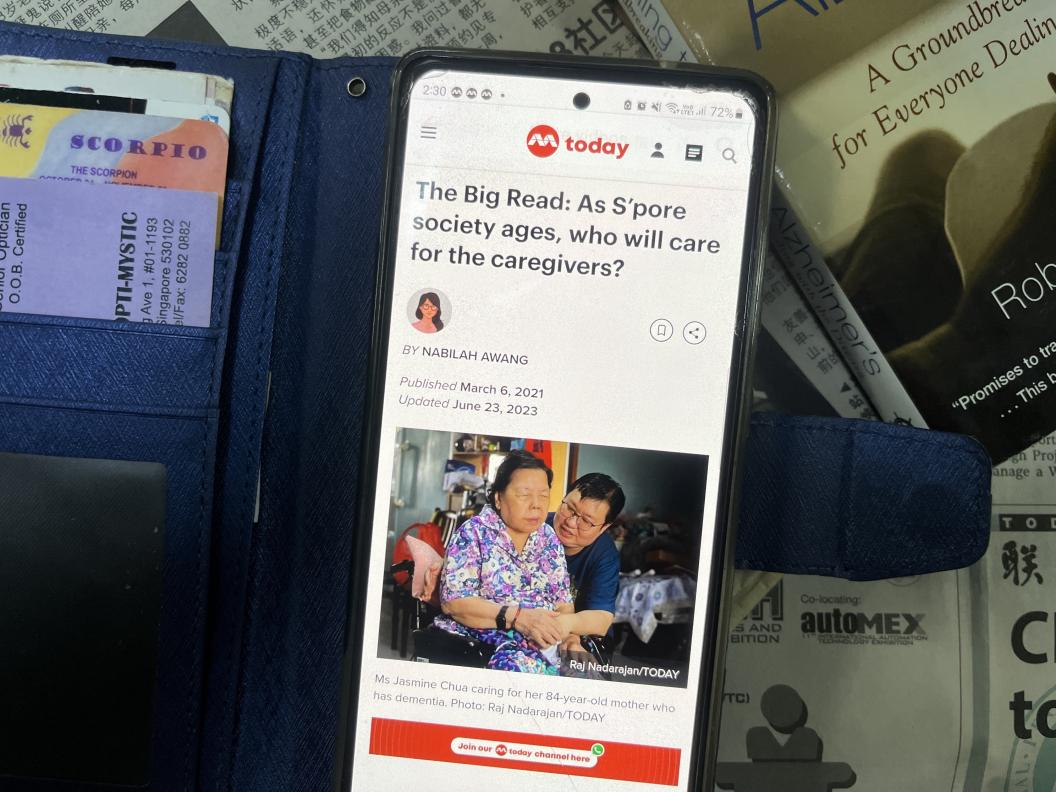
Balancing Act
For a while, Jasmine tried to balance her caregiving responsibilities with a part-time job as a clinic assistant. However, the lack of sleep due to her mother’s nocturnal habits took its toll. “Back then, I’d be lucky to get six to eight hours of sleep a week,” she says. Her mum had started to stay awake at night, much to Jasmine’s dismay. “She wanted to go shopping,” Jasmine recalls. “We’d tell her that it was dark, everyone was asleep and there were no buses or trains for her to take. One of my sisters lived at the other end of Singapore and my mum would ask to go visit them. I’d ask her there is no transportation, do you want to walk? Sometimes, she’d say yes. But then, we’d be able to convince her to stay at home.”
After a night of sleeplessness managing her mum’s condition, Jasmine would then have to prepare for a full day’s work. “I was working part-time in a medical clinic. I’d be on call a few days a week, but it was part of my duty to take over staff who were on leave,” she explains. But her mother’s condition complicated matters. “For example, I’d get a call at work from my nephew, who would sometimes come and stay with us, that his grandma has locked herself in her room and refused to come out. She would also refuse to talk to me on the phone.” Situations like these propelled Jasmine to try and finish her work quickly before rushing home to deal with the crisis. “My colleagues would tell me to just finish what I was doing quickly so I could go home early.”
Despite this, it was witnessing her domestic helper’s frustration with caring for her mother that led Jasmine to quit her job.
Her decision to become a full-time caregiver was not easy. It meant giving up her financial independence and relying on the support of her five married siblings. But for Jasmine, the choice was clear: “I told myself either I earn money and watch my mother’s condition worsen, or I don’t earn money but I help her lead a better quality of life as much as possible."
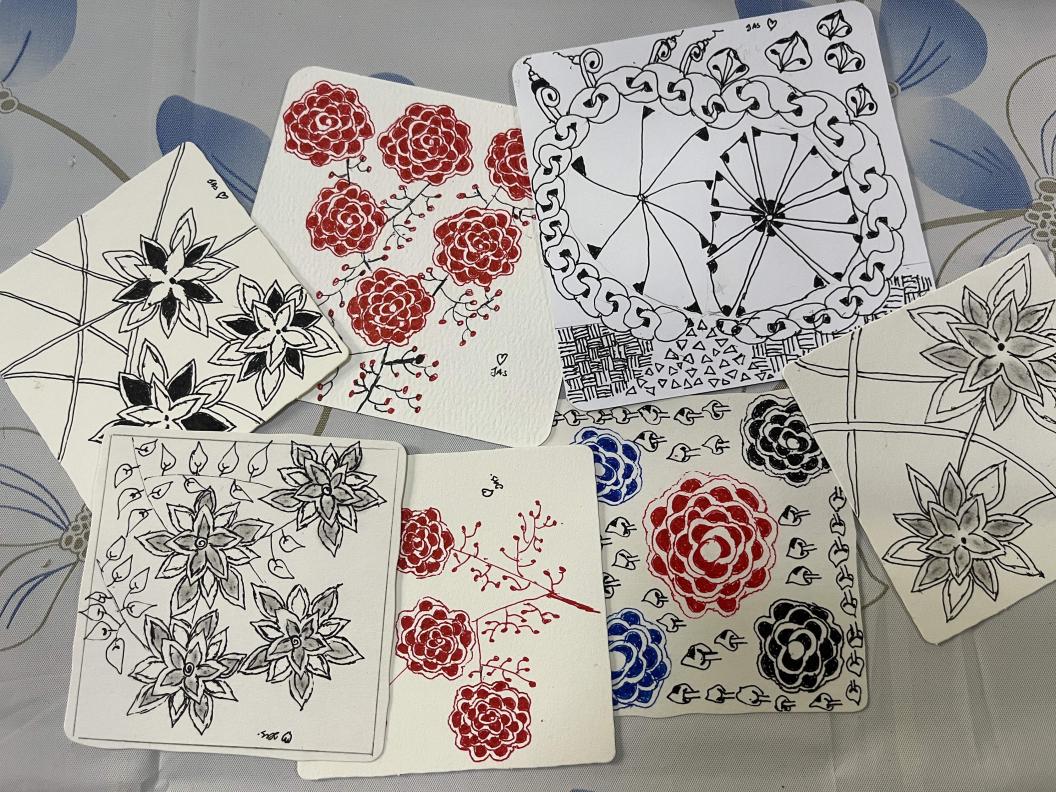
Challenges and Coping Strategies
The challenges Jasmine faces daily are immense. Her mother’s dementia has progressed to the point where she needs a catheter due to a urinary tract infection and is tube-fed, and medical necessities are complicated by her mother’s resistance. “She would pull out the tubes — she had no trouble doing that,” Jasmine says. In situations like these, Jasmine relies on quick and creative thinking. “We tell her that this is how the government says we must do it and she would accept that,” she says with a smile.
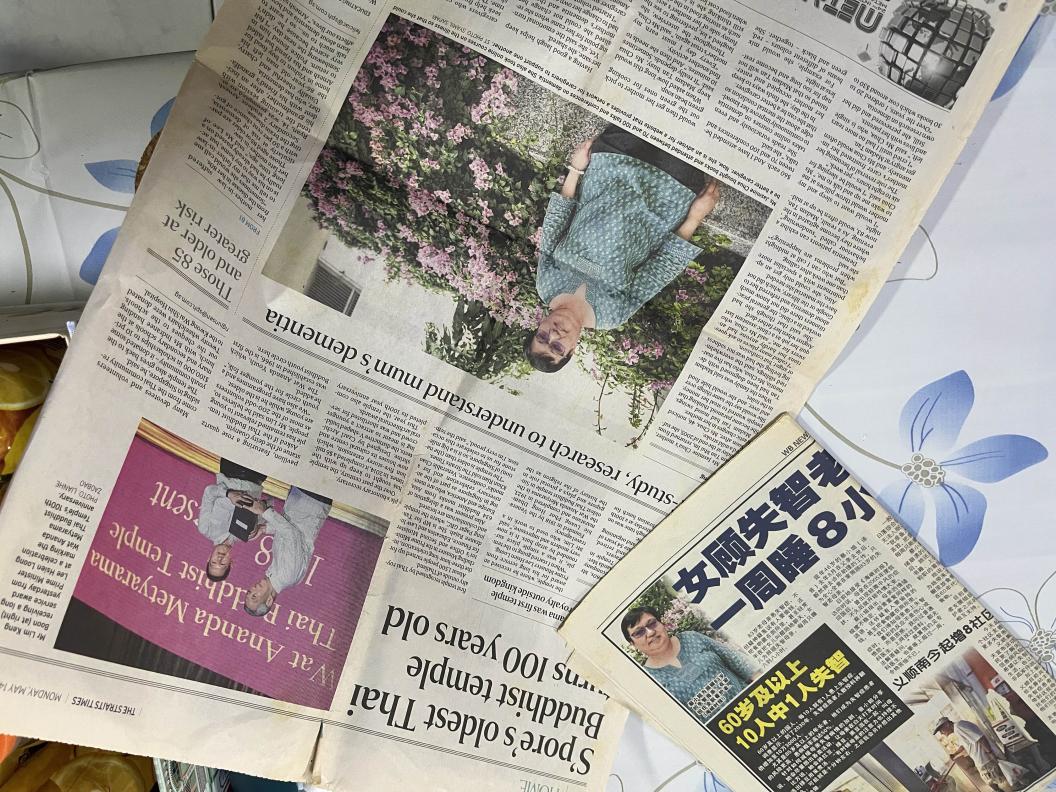
Using Her Experience to Help Others
Despite the challenges, Jasmine has managed to remain upbeat and find ways to cope. She engages in Zentangle drawing, a form of art that she describes as “brain yoga,” and takes short walks to relax. She also loves listening to music.
She even cheerfully teased us during the interview that all this attention on her makes her want to hide. “You’re not the first one to interview me,” she laughingly reveals. “Channel News Asia, MediaCorp, Channel 8, Today newspaper, The Straits Times… I’ve done the lot,” she says, adding, “I tried to hide, but I don’t think I can hide anymore. At the Model Caregiver Awards, they wanted me to share my experiences, but I said that I’ve already shared my story.”
Jasmine has plans to take it even further in the future by helping others through volunteering. “I have a helper right now, doing the housework and helping with my mum. That’s because I want to also devote some time to volunteering, maybe at the Community Centre. I think with my experience, I can really help — especially families dealing with dementia.” Perhaps because of her experience, Jasmine has more empathy than most. She tells us about encountering a senior in the neighbourhood who appeared to be lost. “From her body language, I knew that she had dementia, so I went up to her to ask if she needed help. She told me she was lost so I took her to the Community Centre and asked them to help her.”
Advice for New Caregivers
Given her experience, Jasmine has a wealth of advice for fellow caregivers. She emphasises the importance of self-care. “My advice to them is, number one, they have to take care of themselves," she says. “You can’t care for your loved one if you get sick.” She also emphasises the significance of communication and understanding in caregiving. “Eye contact, tone of voice, body language is extra important with the care recipient.” She recounts an incident with her mum where a slight touch on the arm was misconstrued as a rebuke. “You have to learn how to touch them. For you, it might be nothing to tap the arm, but for them, it might mean something else.” It took days before her mum forgot about the perceived “slap” in the arm. “Positive things are forgotten quickly, but negative things, they remember,” laughs Jasmine.
Jasmine encourages new caregivers to seek resources and support, stressing that they are not alone. “Do your research, find resources that can help you. Know that you are not alone.” For Jasmine, just finding out what resources she can tap into and the support she can rely on was a great help.
A Journey of Love and Dedication
Jasmine’s story is not just about the challenges of caregiving but also about love, dedication, and the unyielding human spirit. As she continues to care for her mother, Jasmine embodies the essence of selfless love and unwavering commitment. Her story is a beacon of hope and inspiration for caregivers everywhere, illustrating that while the journey is tough, it is also profoundly rewarding.
If you or family members would like more information about caregiving resources and support, the Agency for Integrated Care can help: https://www.aic.sg/caregiving/


